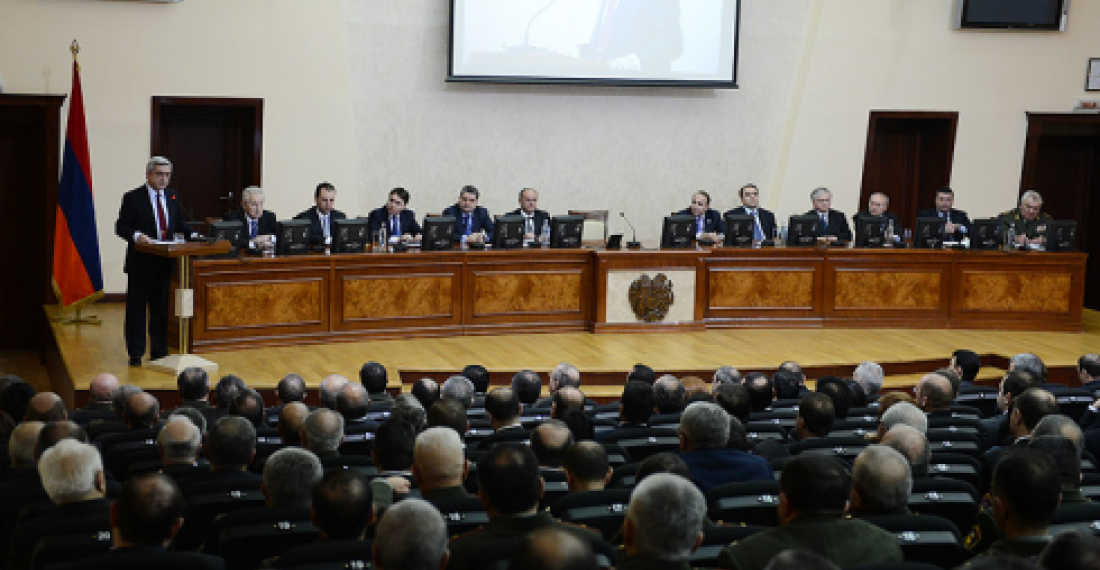The leaders of Armenia and Azerbaijan have attacked each other's policies and strategies with harsh language in key speeches made in their respective capitals on Tuesday (15 January).
In Baku, President Ilham Aliev chaired a meeting of the Cabinet of Ministers, during which he spoke about the country's achievements in 2012 and plans for 2013.
"Today, the Azerbaijani economy is a strong economy, and we have a bright future. And Armenia's economy suffers a downturn. I have often talked about it, I want to say again that the future of that country is challenged; this is where the occupational policy has led them into. As long as the conflict continues, their position will become increasingly worse. We, in turn, must use every opportunity in the future to squeeze Armenia. We have already isolated them from all projects. This policy will continue. We use every opportunity to achieve this. We can, and if necessary we will use political, diplomatic, economic and military capabilities".
The Azerbaijani leader also said that the Azerbaijani Defence budget for 2013 will be US $3.7 billion. Aliev added
"We also in the future will implement policies aimed at strengthening the material-technical base of our army, improve professionalism and discipline. Today our army is the leading military power in the South Caucasus. Our army has made great achievements."
In Yerevan, President Serzh Sargsyan addressed a meeting at the Ministry of Defence attended by senior members of the Executive and Legislative Branches of government and senior military officers.
Mediamax quotes President Sargsyan telling his audience that
"Undisguised anti-Armenianism, racist, fascist and bellicose policy of the Azerbaijani leadership still remains the main threat to our security. This country constantly violates the ceasefire regime, soldiers are killed periodically on the contact line and the Azerbaijani authorities are to blame for their blood."
"The militaristic rhetoric and rooting of anti-Armenianism in the Azerbaijani society has become a real threat to the regional security. A generation full of malice and hatred to our people is growing in this country. How should we assess the statement of the Azerbaijani President that Armenians all over the world are 'the number one enemy' of Azerbaijan? One thing is obvious - the propagandistic policy pursued by the Azerbaijani authorities to their people is just diabolic. And as a result, the Azerbaijani people won't be able to peaceful co-existence still for a long time even if it manages to reach an agreement on the settlement of the problem."
President Sargsyan also urged the international community to recognised the independence of Nagorno-Karabakh:
“Nagorno Karabakh Republic should be recognized by the international community as there is no logical explanation why the people that realized its self-determination right by law and protected itself in unequal war should make part of Azerbaijan."
The statement of the two leaders came on the same day that it was announced that their Foreign Ministers will be in Paris on 28 January for meetings with the OSCE Minsk Group Co-Chair in an attempt to revive the negotiations on the Karabakh conflict settlement. It is not however clear if the two Ministers will meet each other face to face.
source: commonspace.eu with Mediammax News Agency and News.az
Photo: Armenian President Serzh Sargsyan addressing leaders of the Executive and Legislative branches of government and military officers at the Ministry of Defence in Yerevan on 15 January 2013 (picture courtesy of the Press Service of the Armenian President.)







